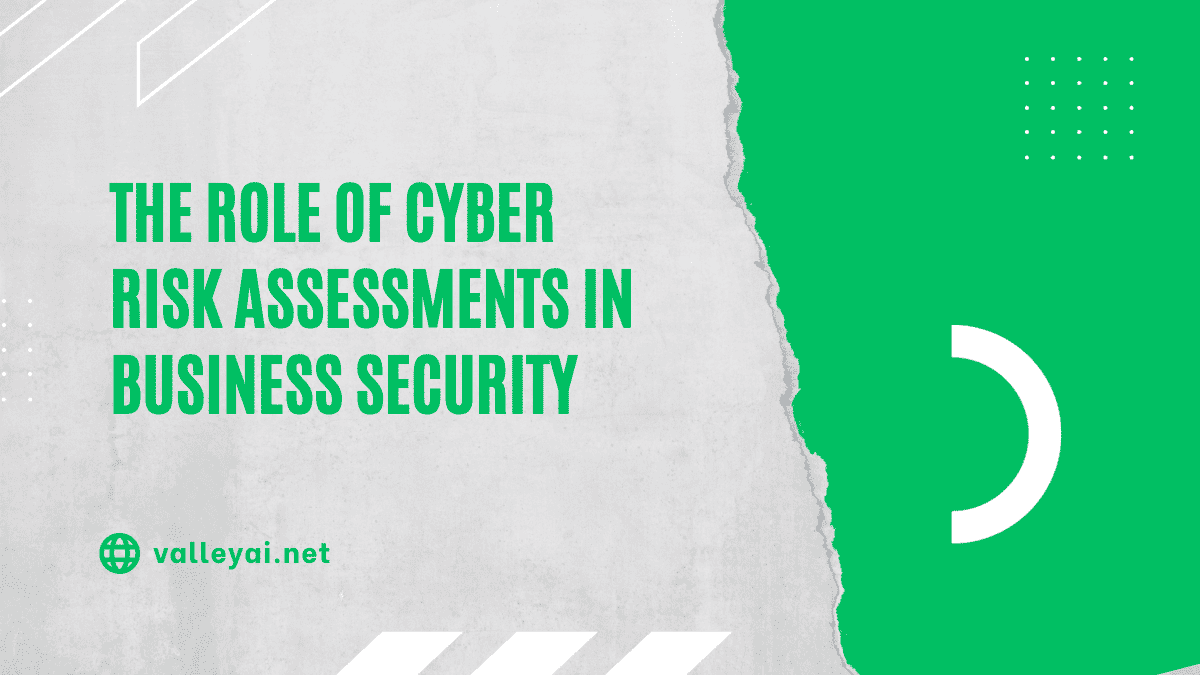Cyberattacks are rising and can cost your business money and reputation. Cyber risk assessments can help you mitigate the risks and protect your sensitive data and critical assets.
First, you need to identify your critical assets and assess their value. You also need to evaluate the likelihood of each threat and its impact on your business operations. Let’s see the role of cyber risk assessments in strengthening business security.
They Help You Prioritize Threats
Cyber risk assessments can help you prioritize your threats by determining which information assets are most critical to the success of your business operations. These assets can range from business communication files, financial data, attorney-client privileged information, and trade secrets to IT systems, networks, software, hardware, and the devices that connect them. In addition to monetary value, an asset’s ability to be easily replaced and its role in vital processes are additional criteria that determine its level of importance.
Then, your assessment can look at all the potential vulnerabilities across your network and assess how likely each is to be exploited by malicious actors. Using a variety of methodologies, including audit reports, the NIST vulnerability database, vendor information, information security test and evaluation (ST&E) procedures, penetration testing, and automated scanning tools, you can catalog all of your assets and identify any vulnerabilities that could affect them.
This process step also examines controls in place to reduce the likelihood that threats will take advantage of the identified vulnerabilities. These can be technical, such as encryption and multifactor authentication, or nontechnical, like security policies, procedures, and physical or environmental protections.
In addition, your assessment can also evaluate the effectiveness of these controls. This is important because, as malicious actors change tactics, you must modify your security controls to protect against new vulnerabilities.
They Help You Identify Critical Assets
Even the most secure business is susceptible to attack. Fortunately, cybersecurity risk assessments help you identify which assets are most important to the organization and where vulnerabilities could lie.
These assessments start with a list of all the firm’s digital and physical assets. These include data centers, servers, applications, networks, etc. They also have every device connected to the network, including printers and security cameras. The assessment will then analyze each asset to determine its vulnerabilities and how much damage it would cause if exploited. This step will also consider the asset’s criticality regarding the firm’s revenue, reputation, and other factors.
Once the risks have been identified, they can be scored using various calculation methods. Two of the most common are likelihood and impact. A third metric is the strength of controls, which helps determine residual risk. Once the risks are identified, responsibility can be assigned to mitigate those risks by deploying measures that reduce the likelihood and impact to an acceptable level.
Cybersecurity risk assessments also help businesses ensure they’re meeting industry-related requirements and regulations. Failure to do so can result in massive fees and fines. A cyber risk management platform will inform companies if they comply, so they can make corrections before it’s too late.
They Help You Mitigate Threats
Cyber risk assessments allow you to identify what needs to be done to mitigate threats. They help you determine the likelihood that hackers can exploit a vulnerability, and they measure the impact of doing so on business operations.
This information helps you decide how much time, money, and resources to dedicate towards eliminating the identified risks. You can also find out which security measures are working and which ones are not. This allows you to eliminate many cybersecurity risks before they cause significant damage.
These assessments can also help you meet compliance standards. Several industries require specific compliances to maintain the highest level of security. Failure to meet these requirements can result in fines and other unwanted outcomes. During a risk assessment, you can see your security controls’ efficiency and take preventive measures to upgrade them before it is too late.
It is also essential to protect critical research data and proprietary business information. If bad actors gain access to this information, they could use it to blackmail or even disrupt your operations. Cyber risk assessments can help you protect these and other nontechnical information assets. This is a necessity for both small and large businesses. However, this is only possible with a properly functioning cyber risk assessment.
They Help You Ensure Compliance
Cyber risk assessments are a great way to see your business’s strengths and weaknesses across its digital attack surface. It also allows you to identify and prioritize threats based on the severity of their impact. This can help you avoid data breaches that can cost your business millions a year and damage its reputation.
Lastly, cyber risk assessments can help you ensure compliance with regulatory requirements and industry frameworks. For instance, if your business handles personal customer information, it must comply with various laws and regulations regarding protecting this information. The assessment process can help you find areas where your policies do not adequately meet these requirements, allowing you to make changes that will.
Cyber attacks are rising, with thousands of cybersecurity breaches occurring daily (MonsterCloud, 2020). Cybersecurity risk assessments are a tried-and-true way to protect your business from these threats and mitigate their impact. However, it is essential to work with a team of skilled IT and cybersecurity professionals to ensure the proper completion of this assessment. Mondo has the talent your business needs to complete cyber risk assessments, implement regular security audits, and provide a strong foundation for your business’s cybersecurity strategy. Contact us today to get started!
- SaaS Growth Strategies: A Complete Guide for Long-Term Success - May 18, 2025
- How Data Science Is Powering Business Decisions in 2025 - April 17, 2025
- The Future of Data-Driven Networking: Trends and Innovations - March 12, 2025

